663921
N,N′-Dipentyl-3,4,9,10-perylenedicarboximide
98%
Sinónimos:
PTCDI-C5
About This Item
Productos recomendados
assay
98%
form
solid
mp
>300 °C
λmax
527 nm
fluorescence
λem ≤533 nm in chloroform
semiconductor properties
N-type (mobility~10−4 cm2/V·s)
SMILES string
CCCCCN1C(=O)c2ccc3c4ccc5C(=O)N(CCCCC)C(=O)c6ccc(c7ccc(C1=O)c2c37)c4c56
InChI
1S/C34H30N2O4/c1-3-5-7-17-35-31(37)23-13-9-19-21-11-15-25-30-26(34(40)36(33(25)39)18-8-6-4-2)16-12-22(28(21)30)20-10-14-24(32(35)38)29(23)27(19)20/h9-16H,3-8,17-18H2,1-2H3
InChI key
JNZZCMNXYAOLTO-UHFFFAOYSA-N
Categorías relacionadas
General description
Application
signalword
Warning
hcodes
Hazard Classifications
Eye Irrit. 2 - Skin Irrit. 2 - STOT SE 3
target_organs
Respiratory system
Storage Class
11 - Combustible Solids
wgk_germany
WGK 3
flash_point_f
Not applicable
flash_point_c
Not applicable
ppe
dust mask type N95 (US), Eyeshields, Gloves
Elija entre una de las versiones más recientes:
Certificados de análisis (COA)
¿No ve la versión correcta?
Si necesita una versión concreta, puede buscar un certificado específico por el número de lote.
¿Ya tiene este producto?
Encuentre la documentación para los productos que ha comprado recientemente en la Biblioteca de documentos.
Artículos
Flexible electronic circuits, displays, and sensors based on organic active materials will enable future generations of electronics products that may eventually enter the mainstream electronics market.
Self-Assembled Nanodielectrics (SANDs) for Unconventional Electronics
Optoelectronic Devices Based on Diketopyrrolopyrrole (DPP)-containing Conjugated Small Molecules
Intrinsically stretchable active layers for organic field-effect transistors (OFET) are discussed. Polymer structural modification & post-polymerization modifications are 2 methods to achieve this.
Nuestro equipo de científicos tiene experiencia en todas las áreas de investigación: Ciencias de la vida, Ciencia de los materiales, Síntesis química, Cromatografía, Analítica y muchas otras.
Póngase en contacto con el Servicio técnico
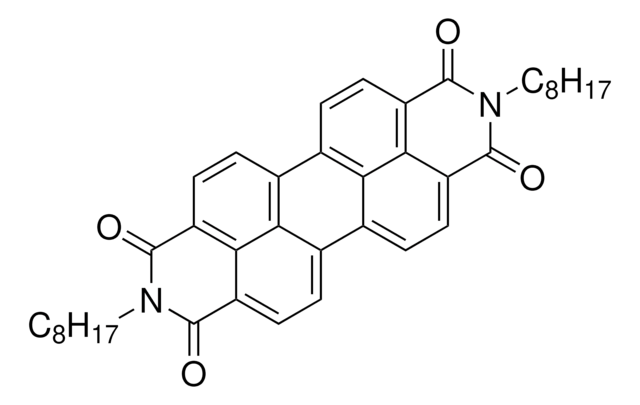
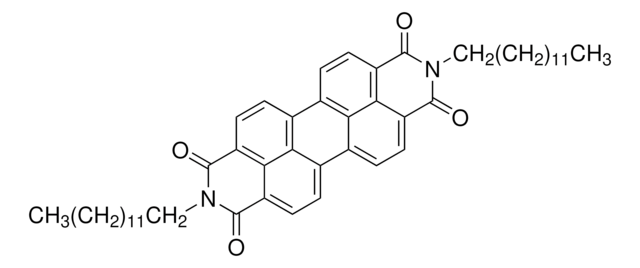
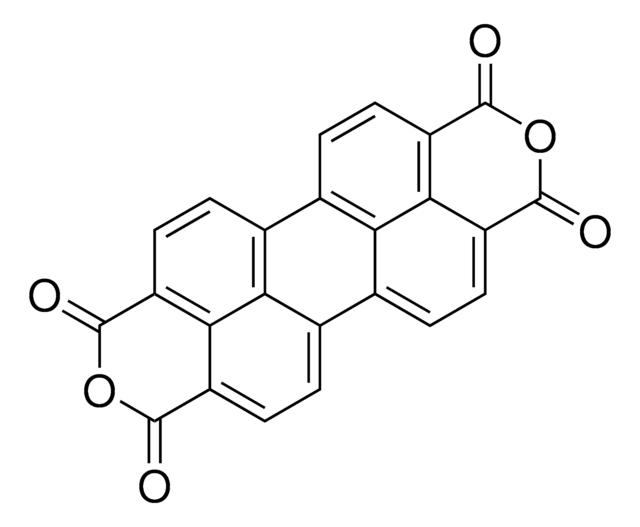
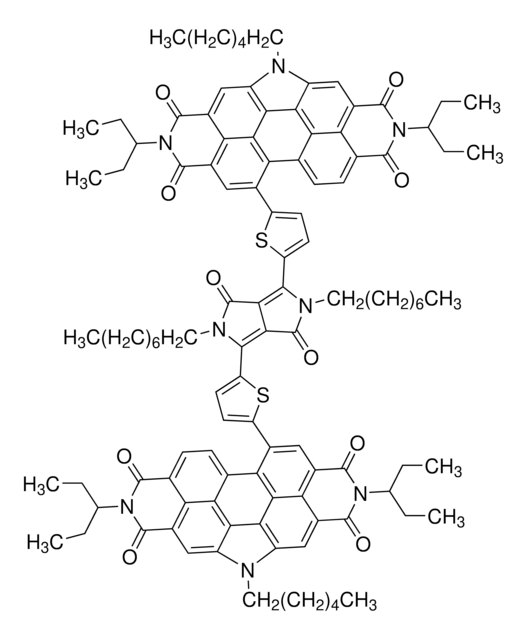
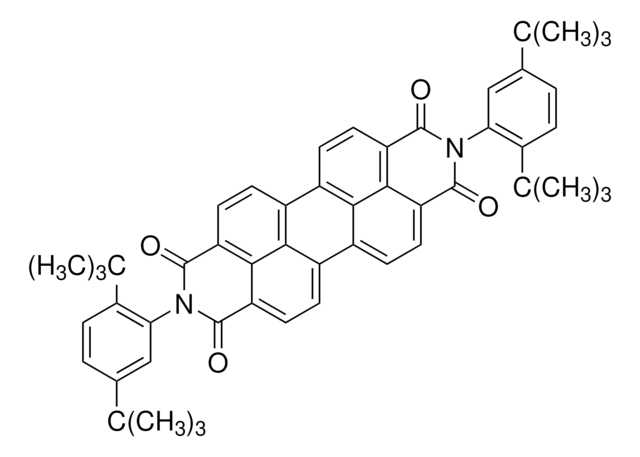
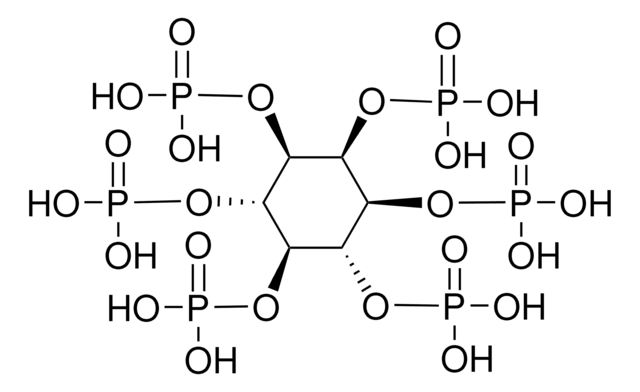

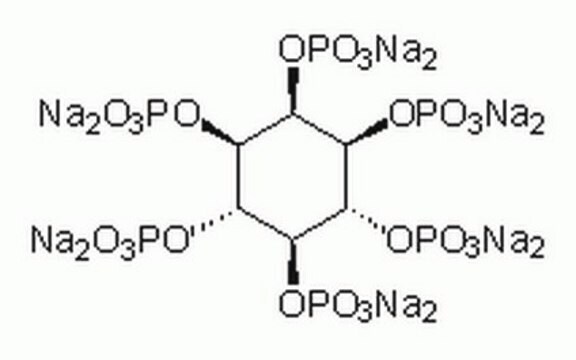
![N,N′-Bis[2-(2-tert-butyldimethylsilyloxyethoxy)ethyl]-3,4,9,10-perylenetetracarboxylic diimide 97%](/deepweb/assets/sigmaaldrich/product/structures/334/047/4ac691aa-ae25-4df1-9e0d-09ed12cb8f1f/640/4ac691aa-ae25-4df1-9e0d-09ed12cb8f1f.png)
